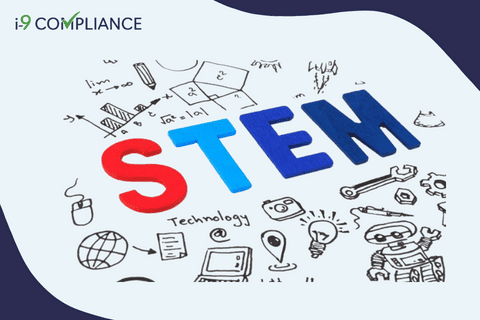USCIS Issues New Guidance Regarding STEM Professionals

September 26, 2022
The United States Citizen and Immigration Services (USCIS) recently updated its guidance and initiatives concerning STEM professionals (science, technology, engineering, and mathematics). This guidance continues the agency’s goal of removing the barriers to legal immigration
Immigration officials must follow the guidelines when making decisions on immigration petitions. Here are some of the new policies and initiatives related to STEM professionals.
-
- Three New Webpages for STEM Professionals: The USCIS launched new websites on July 28, 2022. These websites provide resources that help applicants apply for permanent or temporary status. The three web pages give information on the following topics:
- Options for Noncitizen STEM Professionals to Work in the United States: This webpage provides information about the possible temporary and permanent immigration tracks. It also lists the requirements for qualifying for the various pathways, such as education requirements and whether a job offer or labor certification is required.
- Three New Webpages for STEM Professionals: The USCIS launched new websites on July 28, 2022. These websites provide resources that help applicants apply for permanent or temporary status. The three web pages give information on the following topics:
-
-
- Nonimmigrant Pathways for STEM Employment in the United States: This webpage gives information on the different temporary visas available for STEM fields. These visas include O-1A Extraordinary Ability, H-1B Specialty Occupation, TN NAFTA/USMCA Professional, L-1 Intracompany Transferee, and F-1 Optional Practical Training (OPT).
-
-
-
- Immigrant Pathways for STEM Employment in the United States: On this webpage, the USCIS includes information on options for people in STEM fields to obtain lawful permanent residences (Green Cards), which could lead to U.S. citizenship over time. Some possibilities include EB-2 Advanced Degree Professionals and Persons of Exceptional Ability, EB-1B Outstanding Professors and Researchers, EB-1A Extraordinary Ability, EB-3 Skilled Workers, Professionals, and Other (Unskilled) Workers, and EB-1C Multinational Managers and Executives.
-
-
-
- STEM Guidance Concerning O-1 Extraordinary Ability Petitions: Individuals with extraordinary abilities in the fields of education and arts, science, athletics, business, or in the television or motion picture industry may be able to obtain an O-1 Nonimmigrant visa. The USCIS has updated its policy manual concerning these visas. The manual indicates that a beneficiary named on a competitive grant for STEM research demonstrates their qualifications. Also, the USCIS has restated that it will consider comparable evidence of extraordinary abilities if an applicant has supplied evidence that does not fit any relevant criteria.
-
-
- STEM Guidance Concerning National Interest Waiver Petitions: Applicants are not required to have a job offer or labor certification for a National Interest Waiver. However, they must show the national importance of the specific endeavor to the United States. The USCIS updated its guidance concerning National Interest Waivers filed by STEM Professionals to include the following:
- Importance of STEM Ph.D. Degrees: Advanced degrees, particularly PH.D. degrees awarded in STEM fields related to critical and emerging technologies, are particularly beneficial. The USCIS stated that these degrees help determine whether the person is in a position to further the proposed endeavor of national interest.
- STEM Guidance Concerning National Interest Waiver Petitions: Applicants are not required to have a job offer or labor certification for a National Interest Waiver. However, they must show the national importance of the specific endeavor to the United States. The USCIS updated its guidance concerning National Interest Waivers filed by STEM Professionals to include the following:
-
-
- Letters from Government or Quasi-Governmental Agencies: The USCIS has recognized the importance of letters from government or quasi-governmental agencies. Such agencies include federally funded research and development centers, establishing the national interest of an applicant’s proposed endeavor to the U.S.
-
-
-
- Intellectual Property of the STEM Entrepreneur: The USCIS has acknowledged and clarified how the intellectual property of entrepreneurs serves as probative evidence of past and potential future success in the proposed endeavor. The evidence includes the intellectual property of a petitioner, the petitioner’s current or former start-up entity, and documentation proving the property’s importance to the field of endeavor.
-
Final Thoughts
These initiatives and guidelines do not involve significant regulatory or policy changes. However, they show that the USCIS is trying to help STEM professionals to understand the temporary and permanent immigration options available to them and to improve the efficiency with which the USCIS adjudicates these immigration applications.
Streamline your hiring process with an automated employment eligibility verification and ensure compliance today with I-9 Compliance.